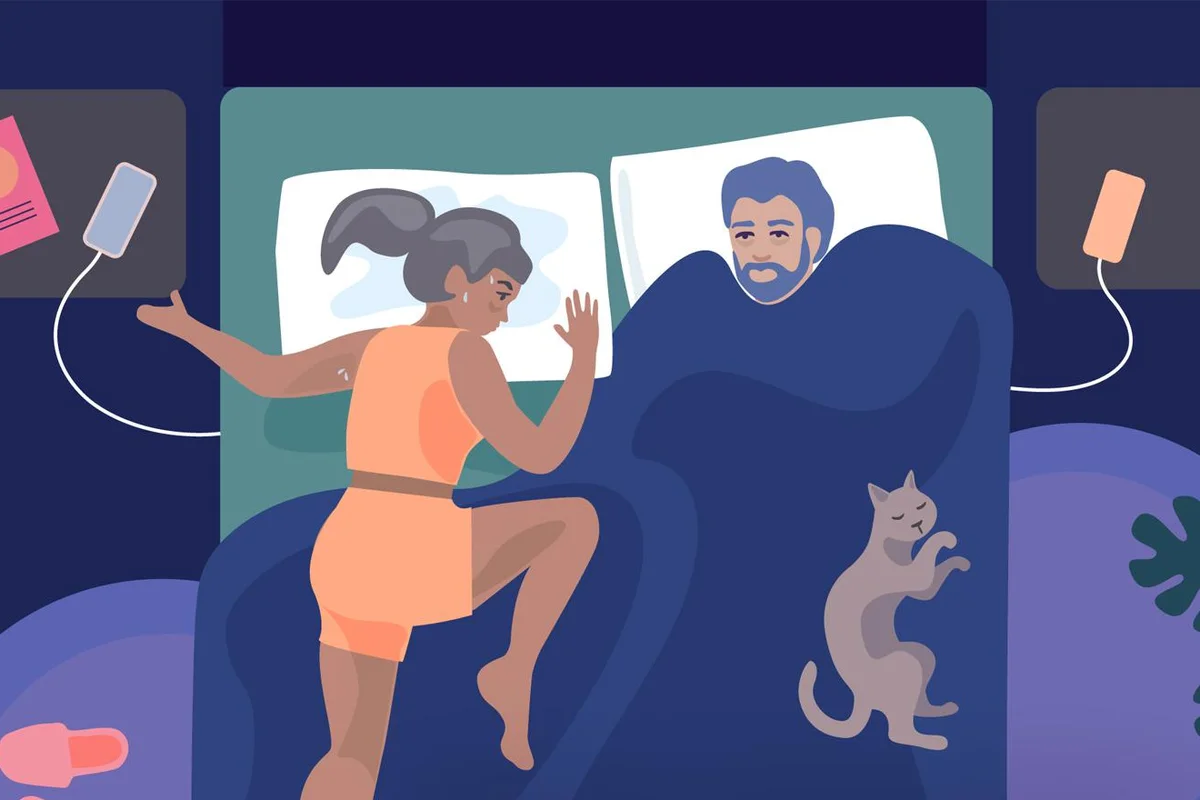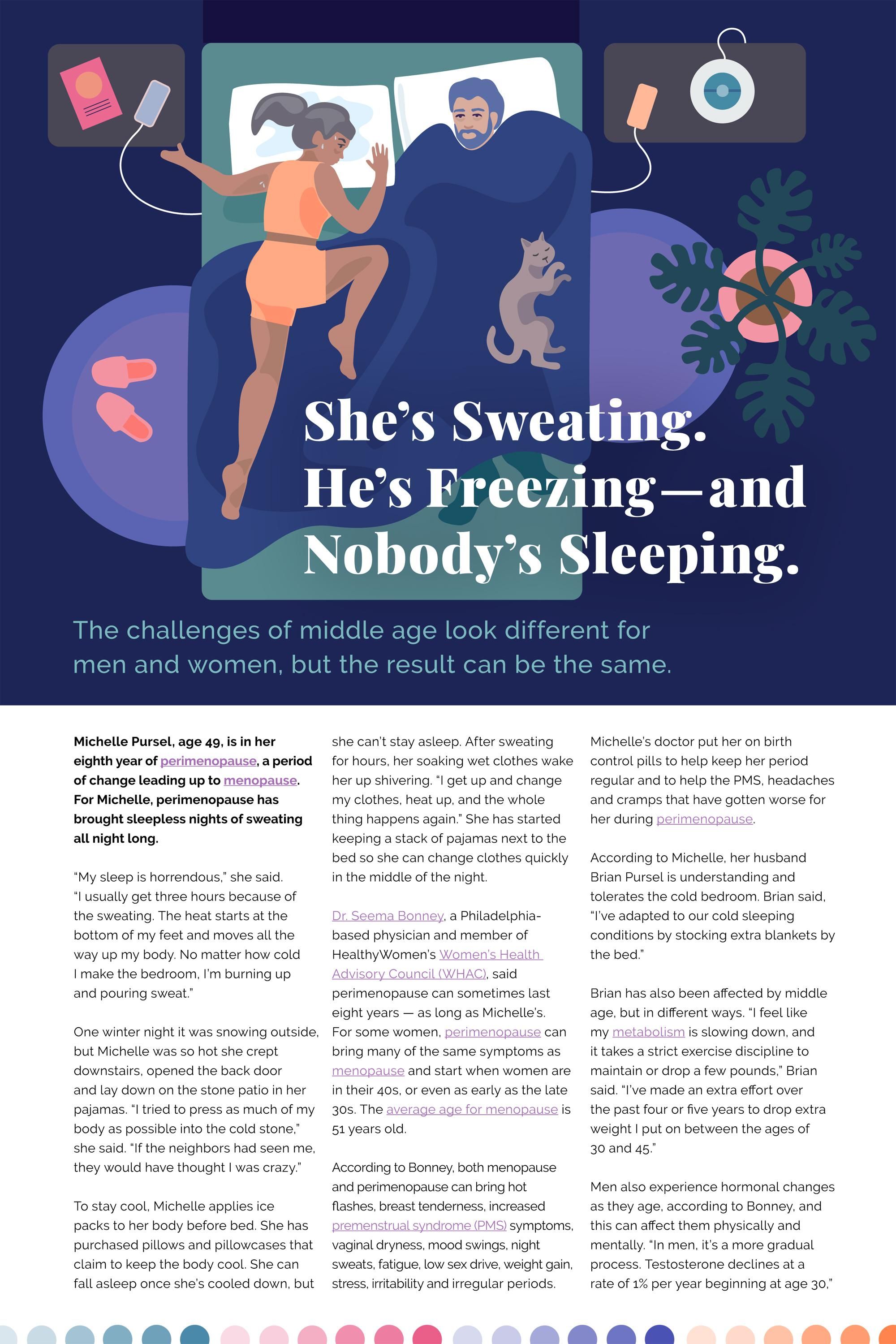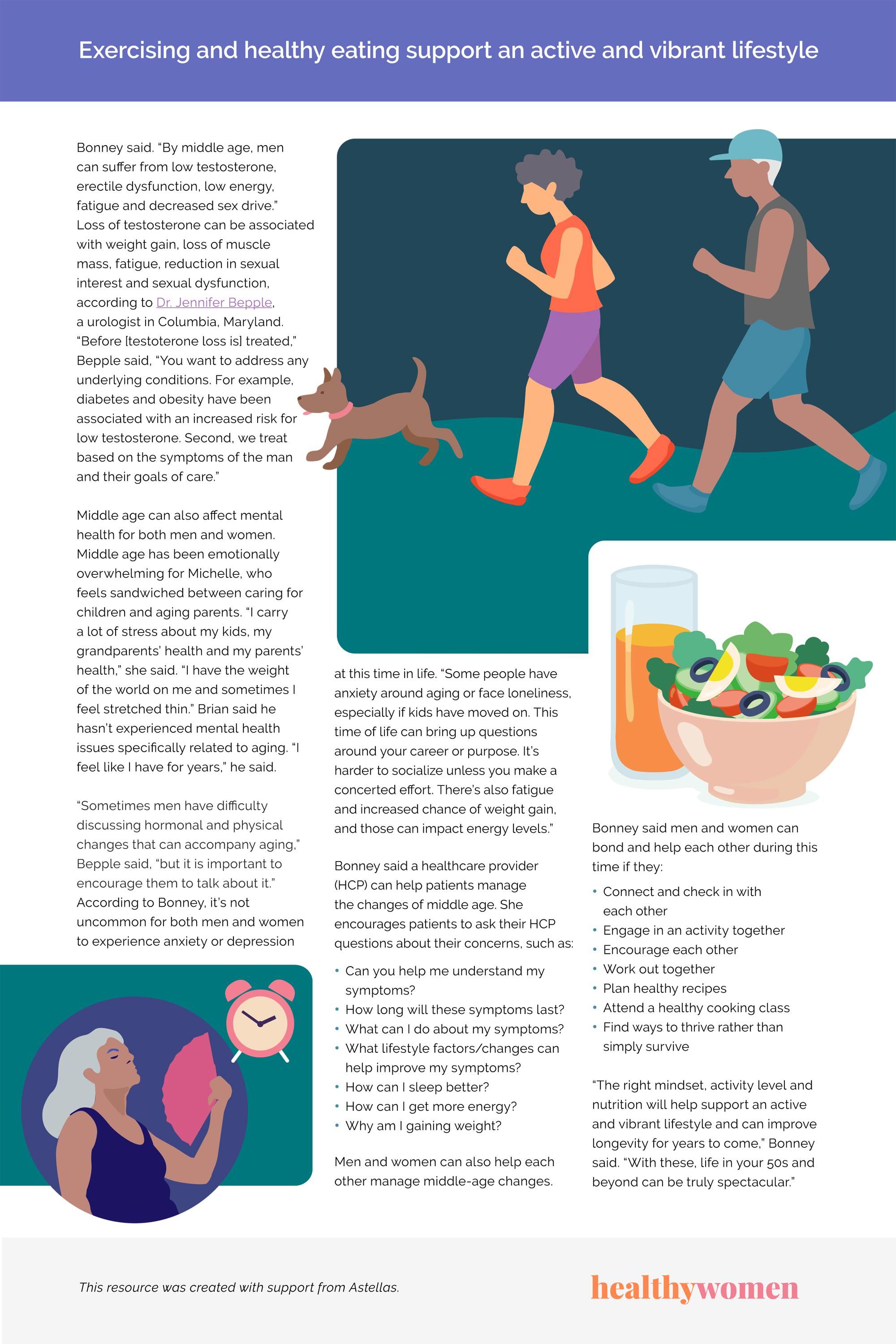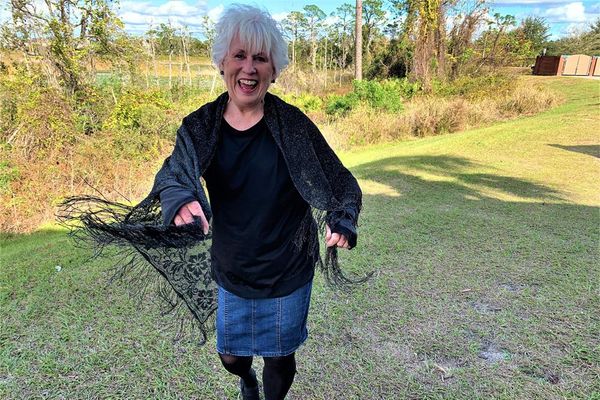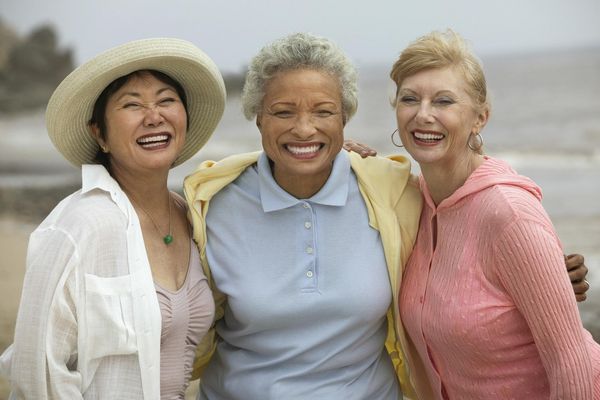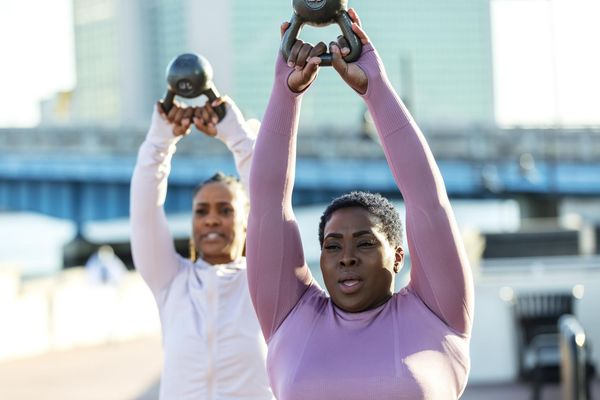Design by Elizabeth Gething
Michelle Pursel, age 49, is in her eighth year of perimenopause, a period of change leading up to menopause. For Michelle, perimenopause has brought sleepless nights of sweating all night long.
“My sleep is horrendous,” she said. “I usually get three hours because of the sweating. The heat starts at the bottom of my feet and moves all the way up my body. No matter how cold I make the bedroom, I’m burning up and pouring sweat.”
One winter night it was snowing outside, but Michelle was so hot she crept downstairs, opened the back door and lay down on the stone patio in her pajamas. “I tried to press as much of my body as possible into the cold stone,” she said. “If the neighbors had seen me, they would have thought I was crazy.”
To stay cool, Michelle applies ice packs to her body before bed. She has purchased pillows and pillowcases that claim to keep the body cool. She can fall asleep once she’s cooled down, but she can’t stay asleep. After sweating for hours, her soaking wet clothes wake her up shivering. “I get up and change my clothes, heat up, and the whole thing happens again.” She has started keeping a stack of pajamas next to the bed so she can change clothes quickly in the middle of the night.
Dr. Seema Bonney, a Philadelphia-based physician and member of HealthyWomen’s Women’s Health Advisory Council (WHAC), said perimenopause can sometimes last eight years — as long as Michelle’s. For some women, perimenopause can bring many of the same symptoms as menopause and start when women are in their 40s, or even as early as the late 30s. The average age for menopause is 51 years old.
According to Bonney, both menopause and perimenopause can bring hot flashes, breast tenderness, increased premenstrual syndrome (PMS) symptoms, vaginal dryness, mood swings, night sweats, fatigue, low sex drive, weight gain, stress, irritability and irregular periods.
Michelle’s doctor put her on birth control pills to help keep her period regular and to help the PMS, headaches and cramps that have gotten worse for her during perimenopause.
According to Michelle, her husband Brian Pursel is understanding and tolerates the cold bedroom. Brian said, “I’ve adapted to our cold sleeping conditions by stocking extra blankets by the bed.”
Brian has also been affected by middle age, but in different ways. “I feel like my metabolism is slowing down, and it takes a strict exercise discipline to maintain or drop a few pounds,” Brian said. “I’ve made an extra effort over the past four or five years to drop extra weight I put on between the ages of 30 and 45.”
Men also experience hormonal changes as they age, according to Bonney, and this can affect them physically and mentally. “In men, it’s a more gradual process. Testosterone declines at a rate of 1% per year beginning at age 30,” Bonney said. “By middle age, men can suffer from low testosterone, erectile dysfunction, low energy, fatigue and decreased sex drive.”
Loss of testosterone can be associated with weight gain, loss of muscle mass, fatigue, reduction in sexual interest and sexual dysfunction, according to Dr. Jennifer Bepple, a urologist in Columbia, Maryland. “Before [testoterone loss is] treated,” Bepple said, “You want to address any underlying conditions. For example, diabetes and obesity have been associated with an increased risk for low testosterone. Second, we treat based on the symptoms of the man and their goals of care.”
Middle age can also affect mental health for both men and women. Middle age has been emotionally overwhelming for Michelle, who feels sandwiched between caring for children and aging parents. “I carry a lot of stress about my kids, my grandparents’ health and my parents’ health,” she said. “I have the weight of the world on me and sometimes I feel stretched thin.” Brian said he hasn’t experienced mental health issues specifically related to aging. “I feel like I have for years,” he said.
“Sometimes men have difficulty discussing hormonal and physical changes that can accompany aging,” Bepple said, “but it is important to encourage them to talk about it.”
According to Bonney, it’s not uncommon for both men and women to experience anxiety or depression at this time in life. “Some people have anxiety around aging or face loneliness, especially if kids have moved on. This time of life can bring up questions around your career or purpose. It’s harder to socialize unless you make a concerted effort. There’s also fatigue and increased chance of weight gain, and those can impact energy levels.”
Bonney said a healthcare provider (HCP) can help patients manage the changes of middle age. She encourages patients to ask their HCP questions about their concerns, such as:
- Can you help me understand my symptoms?
- How long will these symptoms last?
- What can I do about my symptoms?
- What lifestyle factors/changes can help improve my symptoms?
- How can I sleep better?
- How can I get more energy?
- Why am I gaining weight?
Men and women can also help each other manage middle-age changes. Bonney said men and women can bond and help each other during this time if they:
- Connect and check in with each other
- Engage in an activity together
- Encourage each other
- Work out together
- Plan healthy recipes
- Attend a healthy cooking class
- Find ways to thrive rather than simply survive
“The right mindset, activity level and nutrition will help support an active and vibrant lifestyle and can improve longevity for years to come,” Bonney said. “With these, life in your 50s and beyond can be truly spectacular.”
This resource was created with support from Astellas.
- The Surprising Signs of Perimenopause - HealthyWomen ›
- Sleep Disorders - HealthyWomen ›
- 7 Perimenopause Symptoms You Need to Know About Now ... ›
- Is Menopause Playing Havoc With Your Sleep? - HealthyWomen ›
- Menopause and Sleep: What's the Connection? - HealthyWomen ›

